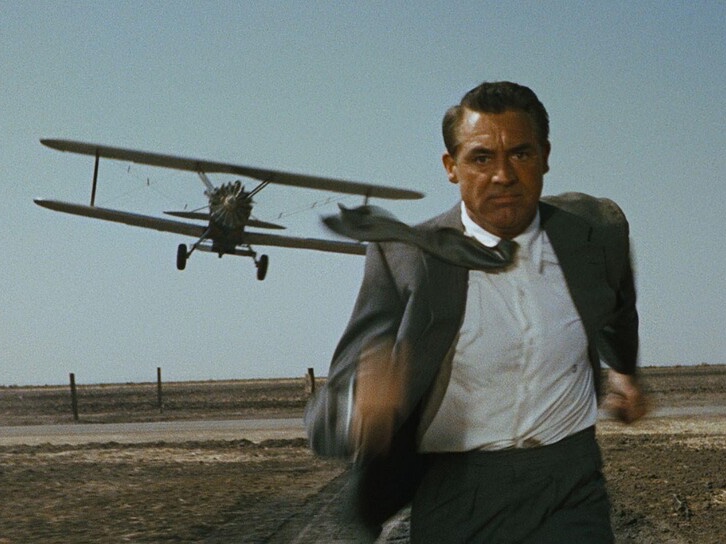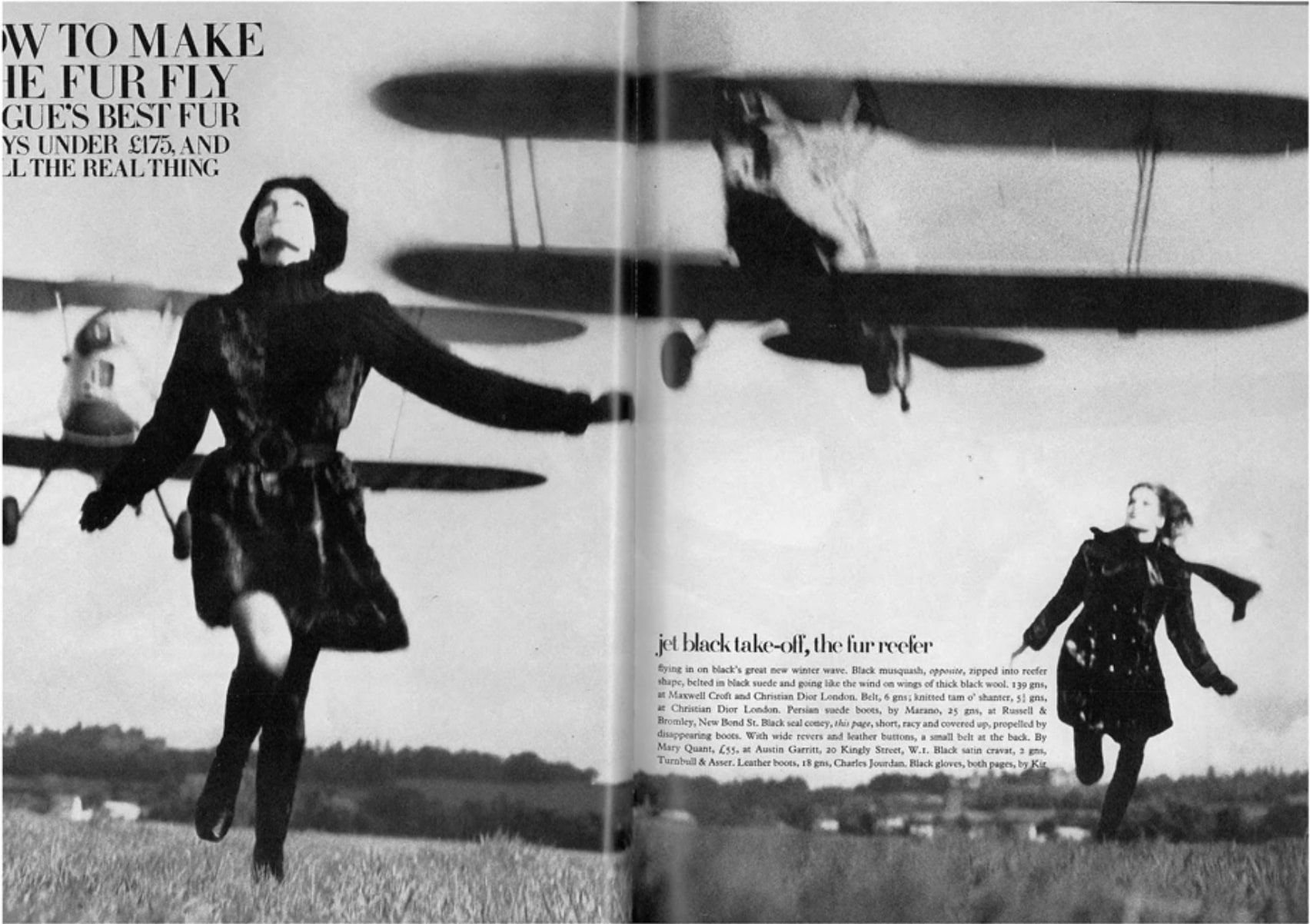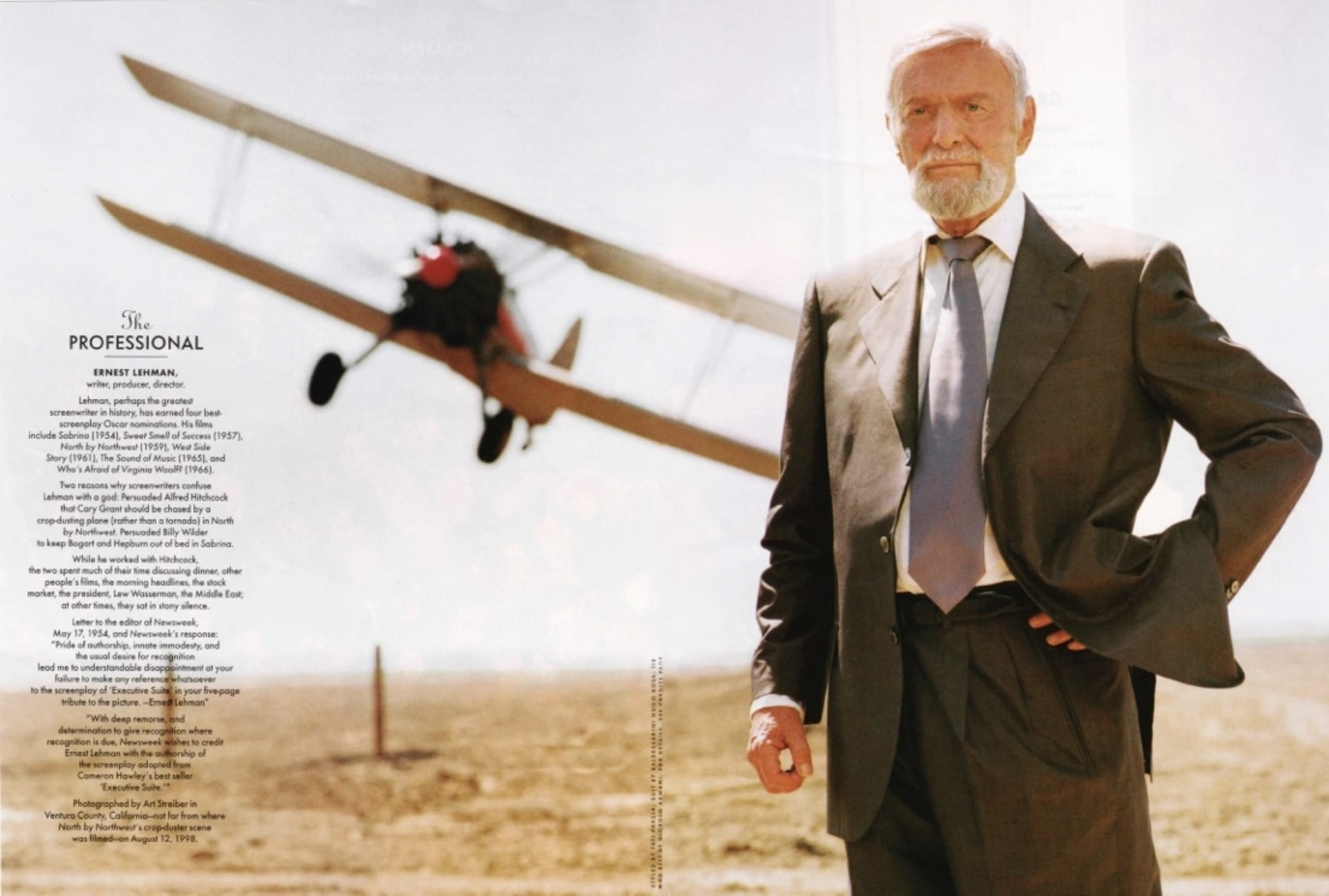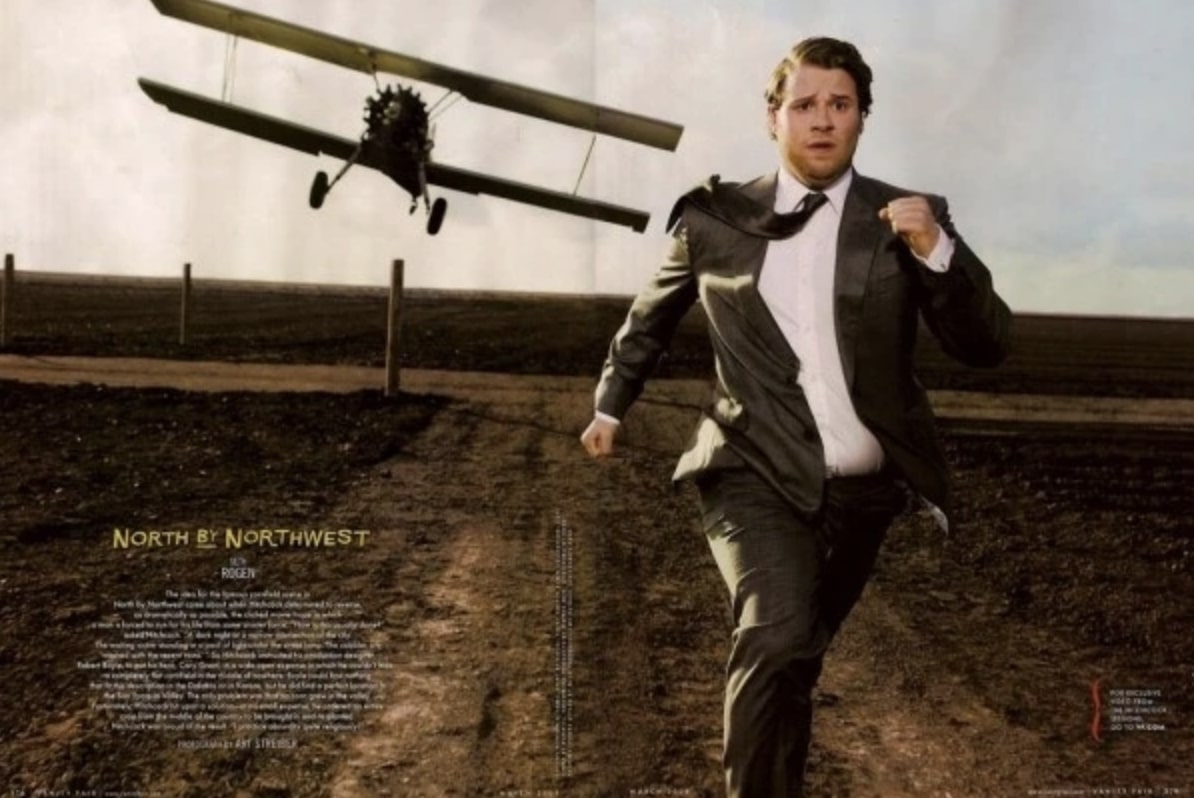
A New York City advertising executive goes on the run after being mistaken for a government agent by a group of foreign spies, and falls for a woman whose loyalties he begins to doubt.
EN
“There seem to be two immediate reasons in North by Northwest for insisting upon the presence of Cary Grant: first to redeem him from certain guilts acquired in those earlier environments, especially in allowing him to overcome the situation of Notorious, as if film actors and their characters get stuck to one another, and as he is being readied for something purer in this context; and, second, to inscribe the subject of film acting, and acting generally, as a main topic of this film, which is to say, a main branch of its investigation of the nature of film. The topic is invoked over and over in North by Northwest: Philip Vandamm (James Mason) hardly says a word to Grant that does not comment on his acting; the Professor (Leo G. Carroll' requests him to act a part; and Eve (Eva Marie Saint) compliments him on his performance in the scene they have just acted out for Vandamm's benefit. The theme of theatricality is generalized by the fact that the part Thornhill is asked and forced to play is that of someone named George Kaplan, who does not exist; but to play the part of a fictional character is just what actors normally do. It happens that in the fiction of this film this new fictional identity is imposed by reality, thus generalizing the theme further into the nature of identity and the theatricality of everyday life. [...]
North by Northwest interprets the actor as a victim, as if of foreign views of himself. This thought puts two figures in the film in the role of directors, the Professor and Vandamm, who create scenarios and make up parts for people. [...] I begin by reinterpreting, or interpreting further, Thornhill's survival of the attack by the plane. The attack is the central image of his victimization. I said earlier that this is the form in which his being an actor is to be declared; and just now I said that his sexual redemption depended on what you might call his survival of a kind of victimization by, or a willing subjection to, an assault of feeling. Something cataclysmic happened to Thornhill and Eve the night before, and I understand the attack the next day to be simultaneously a punishment for the night and a gaudy visual equivalent of it. Then I understand the crop-dusting plane, instrument of victimization, as a figure for a movie camera: it shoots at its victims and it coats them with a film of something that both kills and preserves, say that it causes metamorphosis.”
Stanley Cavell1
“One day, Hitch said to me, ‘I’ve always wanted to do a scene in the middle of nowhere - where there's absolutely nothing. You're out in the open, and there’s nothing all around you. The camera can turn around 360 degrees, and there's nothing there but this one man standing all alonebecause the villains, who are out to kill him, have lured him out to this lonely spot.’ Then Hitch continued, ‘Suddenly, a tornado comes along and...’ ‘But Hitch,’ I interrupted, ‘how do the villains create a tornado?’ and he had no idea. So I wondered, ‘What if a plane comes out of the sky?’ And he liked it immediately, and he said, ‘Yes, it’s a crop duster. We can plant some crops nearby.’ So we planted a fake cornfield in Bakersfield and did the scene that way. And, like you said, it became a very famous sequence. As a matter of fact, that’s how I knew that Cary Grant had died. Every channel on TV was showing that shot of Cary running away from the plane. It’s strange, isn’t it, that such a distinguished career should be remembered mostly for that one shot?”
Ernest Lehman2
“North by Northwest involves a significant personal development for its main character. As Jocelyn Camp and Robin Wood note, the hero not only foils the plot but undergoes a significant character transformation foreign to both Buchan’s original novel and earlier film versions. North by Northwest appears to reproduce the conclusion of The Thirty Nine Steps by bringing its hero back into the home team. But while Buchan views reincorporation as positive, Hitchcock sees it as regressive. Thornhill learns that his own political system allows Eve to use her body in the national interest without any concern for her personal danger. Thornhill’s reaction to The Professor’s attitudes occurs in a “throwaway” fashion within the narrative. But its implications are subversive if one considers the Cold War ideology dominant during the films’ production. Hitchcock not only condemns Buchan’s ‘great game’ but also an institutional system victimizing both those it supposedly protects as well as those manipulated pawns like Eve acting in the national interest.
Thornhill: Do you think I’m going to let you get away with this dirty business?
Professor: She has to.
Thornhill: Nobody has to do anything. I don’t like the games you play, Professor.
Professor: War is hell, Mr. Thornhill, even when it’s a Cold one.
Thornhill: If you fellows can’t lick the Vandamms of this world without asking girls like her to bed down with them and fly away with them and probably never come back, perhaps you ought to start learning to lose a few Cold Wars.
Such a comment uttered in the Cold War era would have resulted in Hitchcock’s blacklisting had not North by Northwest been marketed as a lightweight work by that most conservative and glamorous of studios, MGM. Viewed within this historical context, Thornhill’s statement is a remarkably bold criticism of the abuse of human lives practiced by two opposing systems whose differences are less than they appear. As Patrick McGilligan notes, this was not the first time ‘Hitchcock had sneaked digs at the Red Scare into several of his films’ as certain lines in To Catch a Thief (1955) and The Man Who Knew Too Much (1956) reveal. Although Thornhill’s speech may appear as naïve as Hannay’s in The 39 Steps, it condemns the ideology of John Buchan. The author did recognize a thin dividing line between order and chaos. But he stubbornly continued to affirm establishment codes and ideals in his fiction. Buchan closed his mind to the contradictory nature of his own society. Hitchcock’s attitude was more complex. He depicted explicit contradictions to the status quo in his films. Hitchcock allows Thornhill to articulate both a personal and political attack on a society whose deadly and deceptive nature he never before recognized.”
Tony Williams3
- 1Stanley Cavell, "North by Northwest," A Hitchcock Reader. (Hoboken: Wiley-Blackwell, 2009), pp.250-263. Edited by Marshall Deutelbaum and Leland Poague.
- 2Ernest Lehman, ""North by Northwest": An Interview with Ernest Lehman," Creative Screenwriting 7, nr. 6, November 2000, 47-53.
- 3Tony Williams, “Alfred Hitchcock and John Buchan: The Art of Creative Transformation,” Senses of Cinema, May 2007.





